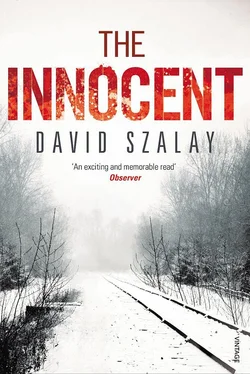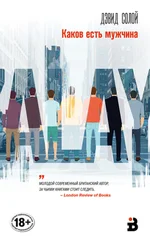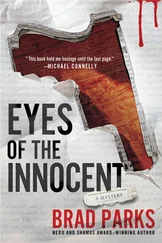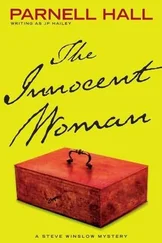We searched the living room, then went upstairs. The slatted, ladder-like steps emerged through the floor of a narrow space with a filthy window. The bedroom door was warped and would not shut properly. I had never been in there until then. There was a washstand and – something from a nineteenth-century European town house – a large porcelain ewer. From the same sort of house there was a low-seated chair, upholstered in faded rose fabric. There were some women’s underclothes on the chair. There was a pine chest with a large glass bottle on it, in which there were some dead flowers, their brown rotten stalks standing in discoloured water. On the wall was a small painting, in the Impressionist style, a sort of oil sketch, a view of a mountain lake.
I stood on the threshold for a few moments. Then I said to Voronin, ‘You search this room.’
He looked surprised. It would be more usual for me to search the suspect’s room myself. Why didn’t I? I’m not sure. There was a sense of trespass. It was very hot and I was sweating. I opened the filthy little window. Ivanov and Timashev were still sitting on the front steps. I shut the window and went downstairs, shouting to Voronin to hurry up.
Dyomkin took his time over the form four-eighty. I stood there in his office, waiting. ‘Is this really necessary?’ he said finally.
‘Is what necessary?’
‘This.’ When I said nothing, he went on: ‘I’ve seen Yudin. He’s an imbecile. He can’t even go to the toilet on his own.’
‘Sign it, please.’
He sighed and shook his head. Then he searched his desk for a pen. ‘Well,’ he said, when he found one, ‘I’m sure you know what you’re doing.’ He shot me a sharp look, which he held for several seconds. Then he sighed again, noisily, and signed the form. ‘There.’ He threw down the pen.
‘Thank you.’
‘I get my huge new office now, do I?’
‘If you want. It’s up to you, isn’t it.’
‘Yes, it is. So.’ He stood up. ‘You off now?’
I nodded.
‘Well … Say hello to Mikhail from me. If you see him. I’m sure you will.’ I ignored this, and had opened the door when he said, ‘You’ve not seen Nadezhda Filippovna, have you? Madame Lozovsky.’
‘No, I haven’t.’
‘Does she know?’
‘Probably,’ I said.
‘Probably? What – you mean she’s probably put two and two together?’
‘I don’t know. What’s it got to do with you?’
He smiled. ‘Don’t get upset!’
‘I’m not upset …’
‘I just want to know if I get to break the news to her, that’s all.’
‘If you want.’
‘Not that I know anything, of course.’
He held my stare for a moment, then lowered his head to light a papirosa.
‘I want Doctor Anichkova to travel with Yudin,’ I said. ‘If you can spare her.’
He looked at me vacantly for a few seconds. ‘Fine,’ he said.
‘She’ll be back tomorrow. Or the next day.’
‘Fine.’
The men were lounging on the front steps of the hospital in their shirtsleeves. Joining them, I sat down in the shade on one of the stone steps. The afternoon was windless, the shaggy pines very still under the mountain sky. ‘We’ll have to go in two lots,’ I said. ‘I’ll go first with Yudin and the doctor.’ When the old Ford pulled up, however, it occurred to me that they might as well leave first, while I waited for Anichkova and Yudin.
When they had left, I stood up and walked down the steps into the sunshine. The hospital had a sadly dilapidated look. Weeds sprouted from its flaking off-white façade. Without Lozovsky and the prestige of his work it would no longer be possible to justify the expense of its existence, and it would shut. There was a sudden small splosh in the ornamental pond. I turned, and noticed a fringed shape of shiny black water on its green surface, where a frog had just plunged in. Sweating, the sun strong on my neck, I thought how wonderfully fresh the water must be, how green and secret the light under the surface mat of weed. Standing there on the paved edge of the pond, I was able to see a small part of my face mirrored – monochrome and ethereal – in the inky shape that the frog had made. With one eye shut and the other fixed on it, I moved my head slowly one way, then slowly the other.
While I was doing this, I was startled by a woman’s voice.
I turned sharply, opening my left eye.
Lozovsky’s wife, Nadezhda Filippovna, was standing there, squinting. I had not seen her since my first visit to Metelyev Log. When I was there for the second time, in May, I did not see her at all.
‘Hello,’ I said.
‘I’ve just spoken to Maks,’ she said, straight out, shielding her eyes with her hand. ‘He says Mikhail’s been arrested. Is it true?’
Surprised, I simply said, ‘Yes.’
‘He says it’s because he didn’t sign a form.’
‘He’s wrong.’
‘Why then?’ She stared at me for a few moments, from under her hand. ‘What’s going to happen to him?’
‘I don’t know.’
‘Do you know where he is?’
‘He’s in Sverdlovsk.’
‘Have you seen him?’
‘I saw him a few days ago. He’s okay.’
‘And what …’ She seemed frustrated. ‘What did he do? You don’t know?’
‘I’m sorry …’
‘Were you in the house earlier?’ she said suddenly.
‘Yes.’
‘Did you take my journal?’
‘No.’
‘Well, it isn’t there.’
I said, ‘One of my men may have taken it.’
‘Do you need it?’
‘I doubt it.’
‘May I have it back then?’
I explained that it had already been taken to the station, and said I would see it was sent to her. ‘What does it look like?’ I said.
‘It’s … It’s just a blue … It has a blue cover.’
‘Okay.’
She seemed nervous. We stood there in the sunshine for a few moments. Then I said, ‘This place will probably shut soon. Your friend Maks doesn’t know, by the way.’
‘He’s not my friend.’
‘Well … He doesn’t know.’
I saw Anichkova step out into the portico at the top of the steps. We would be leaving in a few minutes.
‘Do you have somewhere to stay?’ I said. ‘If this place does shut?’ She looked surprised, said nothing. I said I might be able to find her somewhere in town, and wrote down my telephone number. I told her to phone me if she needed help. I felt I owed her this after what she and her husband had done for me when I was first at Metelyev Log. Anichkova, who had walked down the steps, was watching us with her arms folded. While she waited, she lit a papirosa, and immediately Nadezhda Filippovna turned to her and said, ‘Sorry, would it be possible …’ Anichkova nodded, and offered her one. ‘Thanks,’ she said. I stood there while Anichkova lit it for her. Then, when it was lit, and without even looking at me, she went up the steps and inside.
THE NEW UNION of Journalists hunting lodge opens next month, and as one of the most senior members of the union in the oblast , Ivan expects to use it frequently. Listening to him extolling its luxuries, Aleksandr is reminded of a joke he overheard on the tram. It involves Brezhnev and his mother, who – in the joke – still lives in a peasant village. Brezhnev has invited her to his own hunting lodge in Zavidovo, and proudly shows her around – the panelled dining room, the swimming pool, the sunken bath, the forest stocked with deer and bear. ‘Well, Mama,’ he says, at the end of the tour. ‘How do you like it?’ ‘It’s marvellous!’ she says. ‘But aren’t you afraid the Bolsheviks might come back?’
Aleksandr smiles to himself and Ivan stops speaking. ‘What is it?’
Читать дальше












